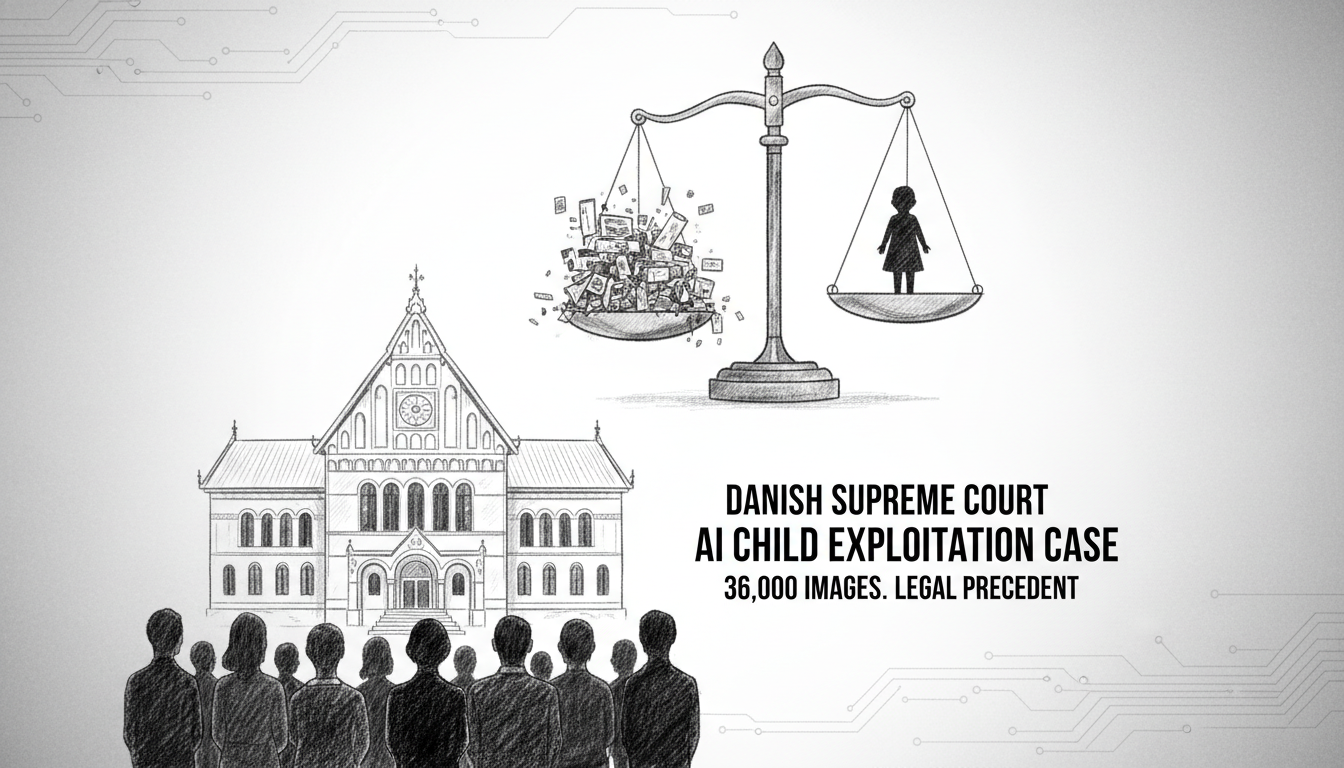Denmark's highest court will soon hear a groundbreaking case involving 36,000 AI-generated child sexual abuse images. This unprecedented legal challenge tests how Danish society handles technology-enabled crimes that exist in legal gray areas. The outcome could reshape Denmark's approach to digital protection and establish important precedents for future cases involving artificial intelligence and exploitation.
A 30-year-old man stands convicted for creating and selling these disturbing images to international customers. He received an initial sentence of one year and three months with three months to serve from the Randers court. Later, the high court increased his punishment to eighteen months of unconditional imprisonment. The defendant admitted producing and distributing the material, which earned him approximately 25,000 Danish kroner.
His defense lawyer Frederik Blicher Jepsen argues the case raises fundamental questions about whether AI-generated content should equal real abuse material. The defendant claims his artificial images prevented consumers from using actual child abuse content. Prosecutors strongly rejected this justification, dismissing his self-characterization as some kind of saving angel.
Child protection organization Red Barnet welcomes the Supreme Court's involvement. Their abuse protection chief Pernille Spitz says computer-generated material trains on real abuse content and often appears indistinguishable. She notes artificial material frequently depicts younger children and more violent scenarios than authentic abuse imagery. The organization campaigns to criminalize all computer-generated abuse content regardless of its artificial nature.
This case has already triggered arrests across multiple countries where customers were identified. The defendant operated a website where users paid small fees to access his AI-generated library. He claims he only realized his activities were illegal when police raided his home.
Denmark recently implemented stricter legislation targeting computer-generated sexualized content involving children. This reflects growing concern about technology outpacing legal frameworks. The Supreme Court's decision will determine whether Denmark's social policy keeps pace with digital innovation while maintaining child protection standards.
The integration of technology ethics within Copenhagen's legal framework represents an evolving challenge for Danish municipalities. Social centers and community organizations increasingly encounter digital dilemmas that existing systems cannot easily resolve. This case demonstrates how artificial intelligence creates new forms of harm that demand updated legal responses.
Danish welfare systems traditionally excel at addressing visible social problems but now face invisible digital threats. The Supreme Court's ruling will signal how effectively Denmark can adapt its strong social protection traditions to emerging technologies. This balance between innovation and protection remains crucial for maintaining trust in Danish social institutions.
Legal experts suggest this case could influence international approaches to AI-generated harmful content. As technology enables new forms of exploitation, nations worldwide watch how Denmark's robust legal system handles these novel challenges. The decision may establish standards that extend far beyond Danish borders.
What does this mean for Denmark's reputation as a digitally advanced society committed to social welfare? The outcome will reveal much about how Scandinavian countries navigate the complex intersection of technology, law, and human dignity. This case represents just the beginning of legal systems grappling with artificial intelligence's darker possibilities.

